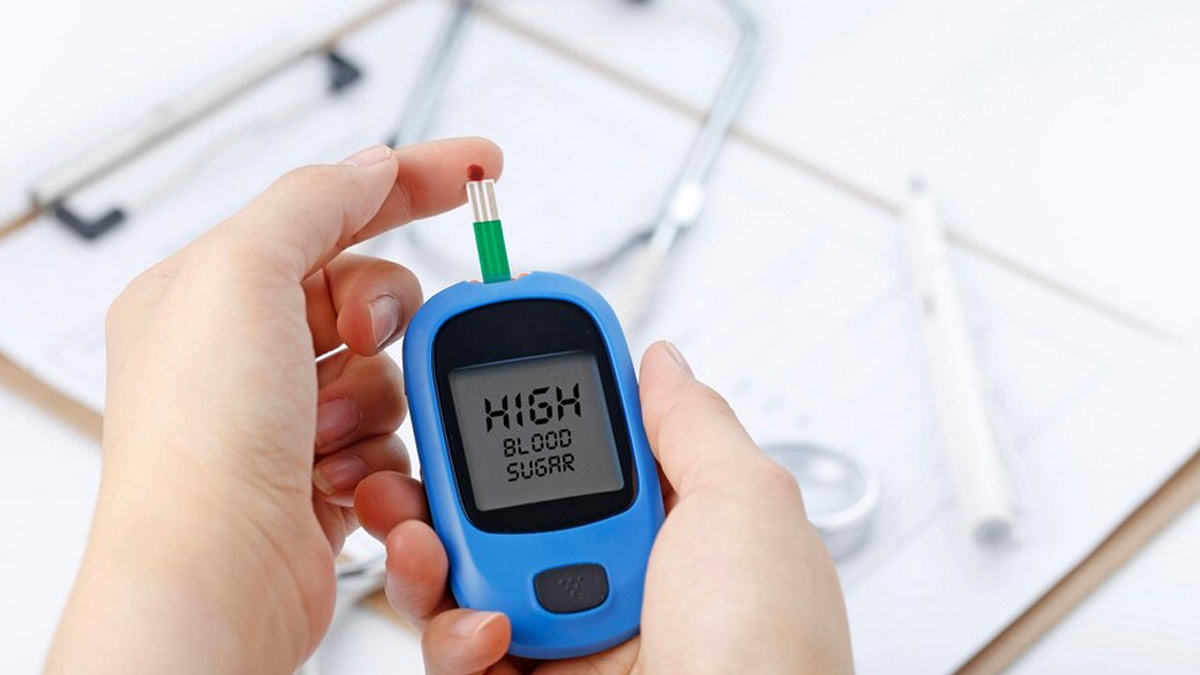
Did you know hyperglycaemia or high blood sugar levels are more evident, particularly in summer? The symptoms exhibit in several ways and may also differ in people depending on their state of health. While classic symptoms of high blood sugar are well-known, such as increased thirst, frequent urination, and fatigue, however, some less obvious signs can be particularly relevant during the summer. We spoke to our expert Dr Amit Kumar, Director and HOD, Department of Nephrology and Renal Transplant, SHALBY Sanar International Hospitals, Gurugram, who listed uncommon signs of hyperglycaemia in the summer.
Table of Content:-
Uncommon Indicators of High Blood Sugar During Summer
The 9 uncommon signs of high blood sugar levels that people might experience during summer are:

1. Excessive Thirst
“Kidneys have to work harder to filter the toxins and take in the excess glucose in summer, which leads to increased urine production and loss of fluid. This extra work activates thirst as the body tries to replenish the fluid loss,” said Dr Kumar. Hence, it’s important to stay hydrated by drinking water sufficiently throughout this season. Monitoring blood sugar levels frequently and skipping sugary beverages would be a wise choice.
2. Increased Frequency Of Urination
"When there are high levels of glucose in the blood, it pulls more water in the urine, thereby, increasing the urine output. It is an attempt to get rid of excess sugars," added Dr Kumar. Therefore, fluid intake should be closely monitored and ensure that you drink an adequate quantity of water. For proper management, keeping a close eye on blood sugar levels becomes crucial.
Also Read: Addressing India's DIABETES DILEMMA Never Too Early To Test But May Be Too Late To Treat

3. Blurry Vision
The lenses of the eyes swell which could lead to alterations in vision. Keeping a check on the blood sugar levels through diet, exercise and medication would be a top priority.
According to Johns Hopkins Medicine, Rapid changes in blood sugar levels from low to normal can alter the shape of your eye's lens, causing blurred vision. Once your blood sugar stabilises, your vision returns to normal.
4. Dryness In Skin And Mouth
Dehydration in high blood sugar leads to parched mouth and skin. Stay hydrated, drink plenty of water, use moisturising creams, and monitor blood sugar levels. Avoid beverages that exacerbate dehydration like alcohol and caffeine.
5. Delayed Wound Healing
Elevated blood sugar levels can impair circulation and damage blood vessels, slowing the healing process. Maintaining proper wound care and hygiene is essential to avoid complications.
Also Read: Diabetes Diet: Expert Shares Important Dietary Changes For Anyone New To Type 2 Diabetes

6. Bad Temper And Mood Changes
“Varying blood sugar levels can alter mood and cognitive performance, leading to touchiness and mood swings. Stress management practices, having a balanced diet and keeping blood sugar levels stable help to counter poor temper,” said Dr Kumar.
7. Tickling In Extremities
Neuropathy leads to tingling sensations, pain or numbness, especially in the hands and feet. Engaging in regular physical activity and a stable blood glucose level is the right way to go.
8. Lethargy
Dr Kumar said, “Hyperglycemia restricts the body's ability to use glucose for energy, resulting in tiredness and fatigue. A balanced diet, regular exercise, and sufficient sleep are important for maintaining energy levels.”
9. Infections
Raised blood sugar levels create a positive atmosphere for yeast growth, leading to recurring infections. Good hygiene should be maintained, manage blood sugar levels and usage of antifungal treatments as prescribed by a physician.
Bottomline
Dr Kumar concluded, “Dehydration and heat can aggravate symptoms, particularly in peak summers. Supervision of blood sugar levels encompasses regularly monitoring blood sugar levels, continuing a healthy diet, staying hydrated and consulting healthcare experts for tailored medical advice and treatment modifications.”
[Disclaimer: This article contains information provided by an expert and is for informational purposes only. Hence, we advise you to consult your own professional if you are dealing with any health issues to avoid complications.]
Also watch this video
How we keep this article up to date:
We work with experts and keep a close eye on the latest in health and wellness. Whenever there is a new research or helpful information, we update our articles with accurate and useful advice.
Current Version